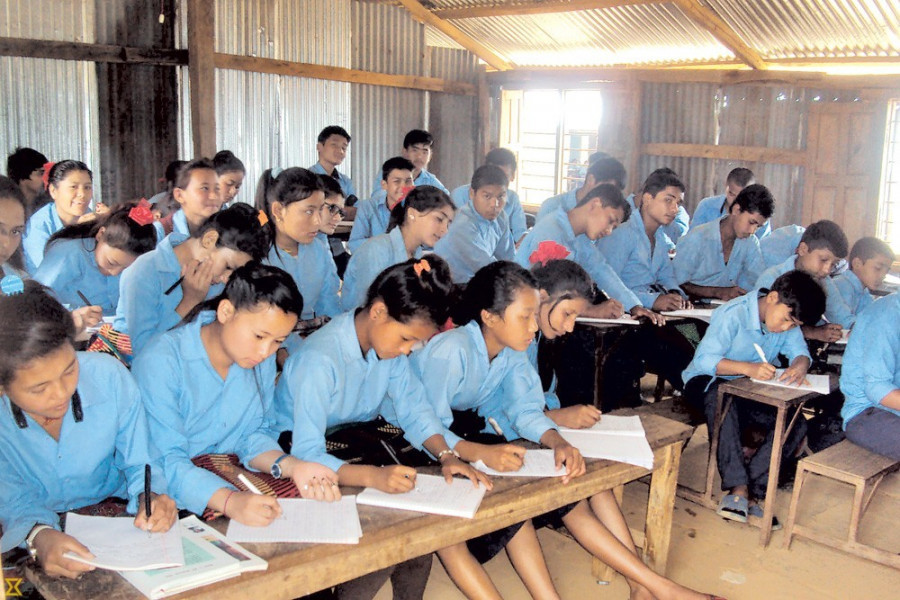National
Teachers challenge local governments’ decision to mandatorily enrol their children in public schools
The local councils’ move is correct but it needs to be backed by laws, education experts say.
Binod Ghimire
In an attempt to improve the quality of public schools, many local governments are using measures ranging from hiring fresh graduates as teachers to constituting school management committees led by elected representatives.
Some of them including Gurans Rural Municipality in Dailekh, Mandavi Rural Municipality in Pyuthan and Maijogmai Rural Municipality in Ilam have made it mandatory for public school teachers to enroll their children in public schools. The decision, according to the people’s representatives, was taken to make the teachers at government-run schools focus on ways to improve the quality of education.
They said the decision was based on the constitutional authority of local governments to manage school-level education by recruiting teachers, holding examinations and developing their own curricula. Some of them have even started imposing fines in thousands of rupees on the teachers who haven’t transferred their children to public schools from private ones.
The Gurans Rural Municipality, for instance, has issued a circular to 32 teachers from the area to pay Rs 10,000 in fine for not complying with the decision of the local government. The move, however, has been dragged into a controversy after some of the teachers refused to pay the fine saying it was illegal and against their freedom of choice. They have also announced to challenge the decision in court if the local government doesn’t roll back its decision.
“There is no legal ground for the decision. We have decided not to pay the fine,” Padam Bahadur Nepal, a teacher at Krishna Secondary School from the rural municipality, told the Post. “The decision is discriminatory as it applies only to teachers—not civil servants.”
Nepal said he hails from Surkhet and lives in Gurans Rural Municipality in rented space so it is not feasible for him to bring his family there just to send his son to that school.
Even though the decision was taken as a measure to improve the quality of education in public schools, the teachers will be allowed to continue to send their children to private schools after paying the fine.
“It seems the decision is motivated for increasing the revenue rather than boosting the quality of education,” said Surendra Chand, principal at the school. “How will the motive of improving the education quality be served just by charging the fine amount?”
Chand said the local government could have introduced some incentives to attract teachers to join the movement rather than imposing a penalty. The decision could demotivate the teachers, which could have opposite consequences, he said.
Local government officials, however, say they took the decision with a good intention. “We believe the teachers will automatically focus on delivering quality education once their children start studying in the public school,” Ram Bahadur Budha, chief administrative officer at the Gurans Rural Municipality, told the Post. He said the village council, the executive body of the local government, made the decision to this effect.
The teachers, who are challenging the move, however, say there is no law to back the decision. This also stands against the 23 powers listed in the Local Government Operation Act-2017.
Education experts say while it is right in principle that everyone holding public positions—from the prime minister and civil servants to teachers—should be enrolling their children in public schools, it should be backed by laws.
“The government must have a law in place before enforcing the decision,” Bal Krishna Luintel, a professor at Kathmandu University who has conducted research on school education, told the Post. “Public education will definitely change if everyone holding public positions starts sending their children to public schools.”
He said government school teachers are the ones who should be most concerned about improving the schools because the expansion of private schools will ultimately take away their jobs. “If the share of private schools reaches 40 percent from the existing 25 percent, hundreds of public schools will be closed, leading to the job cuts of around 50,000 teachers,” he said.




 9.7°C Kathmandu
9.7°C Kathmandu














